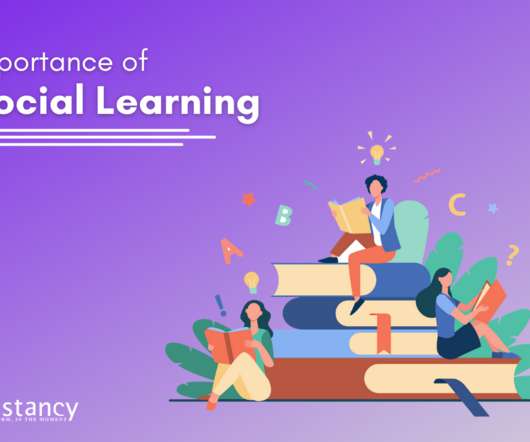Advantages of Informal Learning for Organizations
LearnDash
FEBRUARY 26, 2018
For organizations interested in promoting employee growth, a mix of formal with informal education methods may be the key to success. Informal learning refers to the spontaneous, ad-hoc learning most of us engage in every day when we feed our curiosity or explore answers to questions provoked by our environment.










































Let's personalize your content